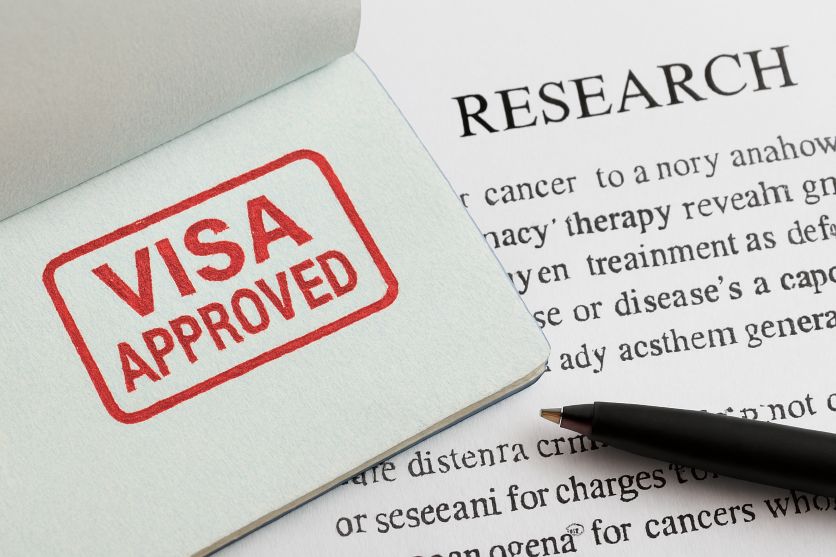How a Visa Law Firm Helps International Cancer Researchers Join U.S. Institutions

Global cancer research thrives on collaboration across borders. From groundbreaking immunotherapies to precision oncology, many of the most promising advances in cancer treatment are the result of international partnerships. U.S. hospitals and research institutions actively seek out top talent from around the world, recognizing that diverse perspectives fuel innovation. But for many foreign oncology experts, the path to contributing in the U.S. is paved with complex immigration hurdles.
Securing the right visa is often the first and most critical step. That’s where a visa law firm becomes essential. These firms specialize in guiding international researchers through the maze of U.S. immigration policies, helping them obtain the appropriate visa to work, collaborate, and conduct research in American institutions. Whether it’s a J-1 for visiting scholars or an O-1 for individuals with extraordinary ability, legal experts ensure that every detail aligns with federal requirements.
Understanding the Challenges
Applying for a U.S. research visa is rarely straightforward. Cancer researchers often face tight timelines, institutional paperwork, and shifting immigration policies. Many are invited to participate in time-sensitive clinical trials or join hospital teams tackling urgent public health issues. Delays or missteps in the visa process can jeopardize these opportunities.
Language barriers and unfamiliar legal systems add another layer of stress. Researchers from countries like India, Brazil, or South Korea may struggle to interpret legal jargon or navigate embassy protocols. A visa law firm acts as a translator, advocate, and strategist, ensuring that each applicant’s credentials are presented clearly and compellingly.
How Legal Experts Facilitate Research Collaborations
Visa law firms do more than file paperwork. They work closely with both the researcher and the host institution to craft a visa strategy that aligns with the research goals. This includes:
- Identifying the best visa category based on the researcher’s background and the nature of the collaboration.
- Preparing detailed documentation such as letters of invitation, employment contracts, and proof of academic achievements.
- Advising institutions on compliance with federal regulations, including sponsorship responsibilities and reporting requirements.
- Handling renewals and extensions to ensure continuity in long-term research projects.
“We don’t just process visas, we build bridges,” says one immigration attorney who specializes in medical and scientific fields. “Every successful application means another expert contributing to the fight against cancer.”
Impact on U.S. Hospitals and Research Centers
Hospitals benefit immensely from international oncology talent. Foreign researchers bring specialized knowledge, fresh methodologies, and global networks that enrich local teams. Their presence accelerates clinical trials, expands treatment options, and enhances patient care.
Visa law firms help institutions stay competitive. By streamlining the immigration process, they allow hospitals to recruit faster and more efficiently. This is especially crucial in high-demand areas like pediatric oncology, immunotherapy, and cancer genomics, where delays can mean missed breakthroughs.
Stories Behind the Paperwork
Behind every visa approval is a story of hope and determination. A researcher from Nigeria who developed a new diagnostic tool for breast cancer. A postdoc from Argentina who joined a U.S. team studying rare pediatric tumors. A surgeon from the Philippines who now leads clinical trials at a major cancer center. These journeys were made possible with the help of legal experts who understood both the science and the system. One recent study by French researchers even sheds light on how and where cancer cells form tumors, reinforcing the importance of global collaboration.
Visa law firms are often the unsung heroes of medical progress. Their work ensures that borders do not become barriers to healing. By enabling international researchers to contribute their skills and insights, they help push the boundaries of what’s possible in cancer care.
Conclusion
International collaboration is the heartbeat of modern oncology. As cancer continues to challenge scientists and clinicians worldwide, the need for cross-border partnerships grows stronger. A visa law firm plays a vital role in making these collaborations happen. Their expertise turns legal complexity into opportunity, helping researchers bring their knowledge to the U.S. and join the global fight against cancer.
